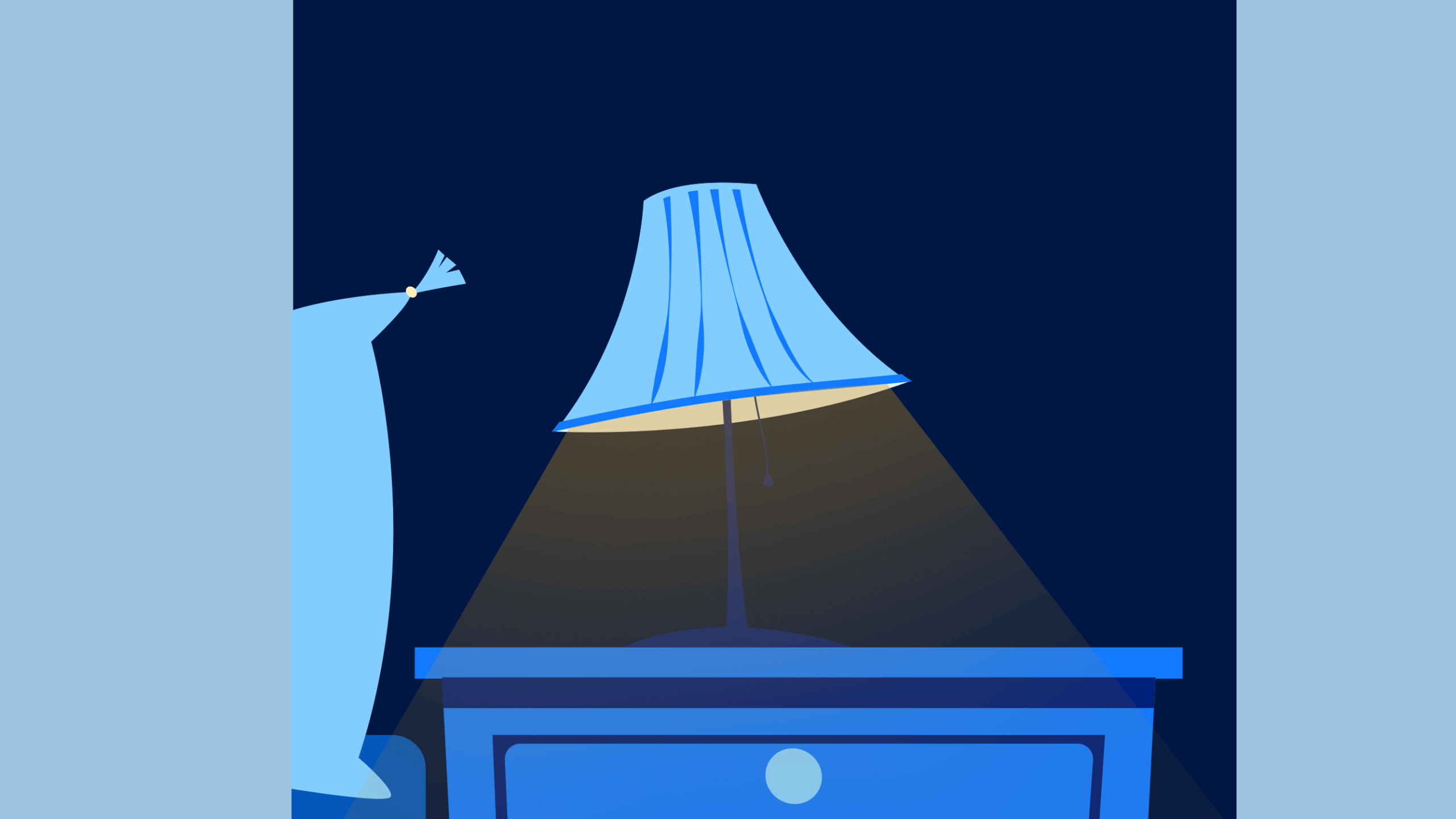Key Takeaways
- Pros of Having a TV in the Bedroom: Having a TV in the bedroom can provide convenience and entertainment, allowing you to enjoy your favorite shows and movies without leaving the comfort of your bed. Watching TV in bed can be a form of passive relaxation, promoting stress relief, helping you unwind after a long day, and enhancing comfort and enjoyment in your personal space.
- Cons of Having a TV in the Bedroom: While a TV in the bedroom offers convenience, it also comes with potential drawbacks. The light emitted can disrupt circadian rhythms and negatively impact sleep patterns by signaling the brain to stay awake. Engaging in TV shows, especially before bedtime, can lead to delayed sleep and reduced sleep duration. Prolonged TV watching, particularly while in bed, can contribute to sedentary behavior, impacting overall health.
- Considerations for the Right Decision: Reflect on how a TV might affect your sleep quality and daily routines, weighing the convenience of entertainment against potential sleep disruptions. Assess the role it plays in your relationships, evaluating whether it enhances or hinders emotional connections with your partner. Moreover, be mindful of the potential negative effects, such as eye strain and vulnerability to ads.
Do you think having a TV in your bedroom is a good idea? People have different opinions about it. Some say it’s convenient and fun, while others believe it might cause problems for sleep and mental health.
In our daily lives, screens are everywhere, from using apps for grocery lists to texting and watching shows on TV or streaming platforms like Netflix. We are constantly surrounded by technology, and the debate about having a TV in the bedroom is still ongoing.
Does having a TV in the bedroom improve or harm relationships? An important aspect to consider is how it affects your sleep, which can be a tricky topic to discuss at home.
Let’s delve into the reasons for and against having a TV in your room, so you can make an informed decision that suits you best. Whether it’s about binge-watching your favorite shows or finding ways to relax and unwind, understanding the impact of having a TV in the bedroom can help you make a wise choice.
Pros of Having a TV in the Bedroom
Having a TV in the bedroom comes with its share of advantages, especially when it comes to sleep quality and falling asleep. Exploring these benefits can help you decide whether having a TV in your room is the right choice for you.
Convenience and Fun
Having a TV in your bedroom offers convenience and fun, as you can easily watch your favorite shows and movies without leaving your bed. It’s like having your own entertainment spot right there! You can even set up a mini fridge in the bedroom, too, with accompanying snacks for while you watch.
With a TV in your room, you can enjoy screen time without having to go to another room, making it a convenient way to relax and unwind after a long day. Whether you want to catch up on your favorite series or have a movie night, having a TV in your room can bring entertainment and enjoyment to your personal space.
Relaxation and Stress Relief
Enjoying shows in the bedroom provides a valuable opportunity for relaxation and stress relief. Music, films, television, and digital media can offer measurable psychological benefits. Unlike playing video games or scrolling through social media, watching TV in bed lets our brains unwind passively, making us feel more relaxed.
Considering how what we watch can affect our moods, it’s essential to choose shows or movies thoughtfully as they can influence our bedtime experiences. So, next time you’re deciding which show to put on, take a moment to consider the white noise and how it could impact your life.
Bonding with Family
Having a TV in your room can be a fantastic way to bond with family, as it fosters shared entertainment experiences and creates greater feelings of togetherness. It provides an opportunity for kids and parents to enjoy shows or movies together, making bedtime a special and enjoyable family moment.
Some may feel that having a TV in a child’s bedroom may provide a sense of comfort and entertainment, offering them a familiar source of enjoyment and relaxation in their personal space. However, much research Verified Source National Library of Medicine (NIH) World’s largest medical library, making biomedical data and information more accessible. View source has been done Verified Source National Library of Medicine (NIH) World’s largest medical library, making biomedical data and information more accessible. View source suggesting Verified Source National Library of Medicine (NIH) World’s largest medical library, making biomedical data and information more accessible. View source the detrimental effects Verified Source National Library of Medicine (NIH) World’s largest medical library, making biomedical data and information more accessible. View source of a TV in a kid’s bedroom, particularly in early childhood, Verified Source National Library of Medicine (NIH) World’s largest medical library, making biomedical data and information more accessible. View source so we caution against it. There is also concern about how a bedroom TV and screen time overall may be contributing Verified Source National Library of Medicine (NIH) World’s largest medical library, making biomedical data and information more accessible. View source to the rise in childhood obesity.
See also our guide for parents on managing a child’s screen time for better sleep.
Better than Scrolling on Your Cellphone
Watching TV in your bedroom can be a better option than spending time scrolling on your cell phone before bedtime. Many people spend time on a phone before bed, not realizing how much the activity can promote wakefulness.
While it’s still best to avoid screen time altogether and have a tech-free bedroom, using smartphones or computers can negatively impact your sleep structure more than watching television.
Interactive screen time is more harmful Verified Source National Library of Medicine (NIH) World’s largest medical library, making biomedical data and information more accessible. View source to sleep than passive screen media like TV.
So, for better sleep, it’s a good idea to watch TV instead of spending too much time on your phone before bed, especially for social media enthusiasts.
Cons of Having a TV in the Bedroom
Having a TV in the bedroom comes with its share of drawbacks and negative effects on various aspects of our well-being. By exploring these advantages, you can determine if having a TV in your room is the best decision for your personal preferences and lifestyle.
Disrupting Your Circadian Rhythms
Watching TV in the room can disrupt your circadian rhythms due to the light emitted from the screen, which signals to your body that it needs to be awake. Light exposure has two main effects on the body’s circadian rhythm. Firstly, it shifts the phase of the master circadian clock in the brain’s suprachiasmatic nuclei, with evening light exposure leading to a delay in the circadian rhythm. (Especially when the desire to binge-watch shows keeps you up for ‘just one more episode.’)
Secondly, light has acute effects such as increasing alertness. Melatonin, a hormone, is influenced by these effects in two ways: it alters the phase of melatonin synthesis rhythm and also acutely suppresses melatonin production. While melatonin does not directly regulate sleep, it serves as a marker for the effects of light exposure on the circadian clock and alertness, which ultimately affect sleep patterns.
Unlike tablets and smartphones with blue light blockers, many TVs lack built-in filters, exposing your eyes to more blue light, which can negatively impact your ability to fall asleep.
”Circadian and alerting responses to light are most sensitive in the blue region of the spectrum,” says Prof Stuart Peirson from the University of Oxford. “However, light at other wavelengths (colors) can also produce effects. These responses also depend upon how bright the light is – not just the color.”
“Most night mode apps reduce the blue light and the brightness of the screen. As such, if you cannot decrease the blue light, you can still reduce the brightness of the screen to help minimize these effects.”
Delaying Your Sleep Time
TV can not only disrupt your circadian rhythm but engaging in a TV program can be tempting, leading you to stay awake longer and reduce your total sleep time as you keep saying “Just one more episode.” Having a TV in your bedroom can make it even more enticing to stay up late, sometimes until 1 or 2 in the morning, as you are already in bed and can keep finding out what happens in the show.
To improve your sleep schedule, it’s best to turn off the TV (and other electronic devices) at least an hour before bed to give your brain some time to unwind and disconnect from the digital world.
“If you need to use a light emitting device before bed, using a night mode app or simply reducing the screen brightness is recommended,” says Professor Peirson. “Dark modes (white text on black background) – designed to save battery by reducing screen light emission – may also help.”
Contributing to Weight Gain
Having the TV in your bedroom can encourage binge-watching, leading to more time spent watching TV and potentially contributing Verified Source National Library of Medicine (NIH) World’s largest medical library, making biomedical data and information more accessible. View source to weight gain, particularly in children. Verified Source National Library of Medicine (NIH) World’s largest medical library, making biomedical data and information more accessible. View source Moreover, watching TV before bed is believed to keep us up later at night and can disrupt sleep cycles, affecting our sleep hygiene.
Spending more time in front of the TV usually means more sedentary behavior, and there’s evidence suggesting that TV can increase food consumption due to the influence of food ads. While watching TV in bed may be appealing to many, it might not be the best choice for maintaining good sleep hygiene.
Causing Eye Problems
Many people watch TV in the dark when they’re getting ready to sleep in their bedroom. However, the glare from backlights can be harmful to your eyes, causing eye strain, headaches, migraines, and computer vision syndrome, visual issues Verified Source National Library of Medicine (NIH) World’s largest medical library, making biomedical data and information more accessible. View source caused by excessive screen time.
Watching TV in the dark can be especially problematic as the TV screen expose your eyes to a constant barrage of stimulating light. So, it’s essential to be cautious about watching TV in the dark in your bedroom and consider taking breaks from screens to protect your eyes as well as topromote better sleep.
Altering Your Dreams
Falling asleep while watching something scary or stressful can impact your dream content, possibly leading to disturbing weird dreams or nightmares. Unlike steady sounds emitted by fans or humidifiers, the constantly changing volume, pitch, and tone of the TV noise can partially jar you awake, interrupting your sleep cycle and reducing the time you spend in REM sleep, making it harder to stay asleep and get a restful night’s rest.
Moreover, what you watch on the screen can trigger memories and thoughts related to past traumatic or upsetting events, potentially causing you to dream about those experiences again as nightmares. So, be mindful of what you fall asleep watching to ensure better sleep quality and avoid disturbing dream content.
Reducing Your Sleep Quality
Should you fall asleep with the TV on in your bedroom, your brain might still pay attention to the sounds even after you’re no longer aware of it. The risk of TV reducing sleep quality is one reason we advocate against sleeping on the couch, after all.
This not only prevents you from going to bed earlier and waking up refreshed but can also lead to the other side effects we’ve noted—eye strain, weight gain, and spending more time watching TV instead of getting restful sleep. To ensure better sleep and overall well-being, it’s essential to limit TV time before bed and create a sleep-friendly environment in your bedroom.
A Barrier to Intimacy
While it may sound great to sit in bed with your partner, enjoying both a favorite show and one of the best mattresses for couples together, watching TV can act as a barrier to intimacy between two people. The presence of a TV in the bedroom can make a partner feel tired or distracted, limiting the ability to spend quality time together and fostering emotional intimacy.
For a more fulfilling relationship, it’s essential to consider how the presence of a TV may impact the couple’s connection and prioritize spending quality time without distractions.
Increasing Vulnerability to Ads
When you’re tired and getting ready for sleep, your brain becomes vulnerable to ads, making you more susceptible to their messages. As a result, you might be more inclined to spend money on unnecessary items advertised to you while you’re in a sleepy state, as opposed to other activities such as reading books stored in the bedroom.
Speaking of your budget, you can save on your finances by being mindful of the fact that TVs can cost hundreds or even thousands of dollars, so it’s essential to consider your budget before making a purchase. If you want a great alternative to fall asleep faster and avoid unnecessary spending, consider other relaxation techniques or calming activities that won’t expose you to persuasive ads while preparing for sleep.
FAQs
How do I keep electronics out of my bedroom?
To keep electronic devices that interfere with sleep out of your bedroom, start by removing any electronic devices, like a bedroom TV, and placing them in the living room instead. Watching TV from your couch in the living room is a better option to avoid the temptation of screens in the bedroom.
Create a sleep-friendly environment by keeping your bedroom free of distractions like electronic gadgets, so you can have a more restful and relaxing sleep. Additionally, try to develop a bedtime routine that doesn’t involve screen time to help your mind unwind before sleep.
Should I have a computer in my bedroom?
No, it’s not recommended to have a computer in your bedroom, as it can negatively impact your sleep and relaxation. Having a separate office space in the house is a better idea to distinguish your sleeping area from your working area. Apart from the sleep and work separation, having a computer in the bedroom might also disrupt the interior design, making it less visually appealing and less conducive to a restful environment.
Creating a dedicated workspace outside the bedroom can promote better sleep hygiene, improve your ability to unwind, and maintain a visually appealing bedroom design. If you must have your computer in the bedroom because of space limitations, consider a budget bedroom makeover that lets you hide it away at night, such as tucking your desk in a closet or cabinet unit.
Does sleeping with your phone affect you?
Yes, sleeping with your phone can affect you negatively. The light emitted from the phone’s screen can disrupt your circadian rhythms, increase alertness and reduce melatonin levels, making it harder to fall asleep and stay asleep.
Instead of using your phone before bed, try engaging in other activities like light reading or drinking a cup of herbal tea for sleep, which can help you unwind and prepare for a better night’s sleep. By reducing phone usage before sleep, you may experience improved sleep quality and wake up feeling more refreshed.
How far away from the bed should I keep a TV?
You should keep a TV at least a few feet away from your bed to ensure a better sleep environment. It’s essential to avoid placing the TV too close to your bed as the bright light and sound can disrupt your sleep and lead to sleep problems. By keeping a suitable distance between the TV and your bed, you can create a more restful sleeping area and improve your sleep quality.
The minimum distance you should keep from a TV tends to depend on its screen size, too. The general rule of thumb is to be at least 1.6 times the screen size away.
Where not to put a TV in a bedroom?
To ensure better sleep, avoid placing a TV in the bedroom, as it can become a distraction and disrupt your rest. If your TV has an art display option, instead of a black screen, you can create a gallery wall to blend it into your bedroom decor and wall color scheme seamlessly, preserving excellent image quality while enhancing the overall interior design.
Conclusion
It’s important to focus on healthy sleep in the bedroom, from adequate darkness and quiet to the disadvantages of sleeping on an old mattress. For some, a TV in the bedroom is detrimental to good sleep hygiene. However, whether or not to have a TV in the bedroom is a personal choice with various considerations.
While having a TV in the bedroom may provide convenience and entertainment, it’s crucial to weigh the potential drawbacks for sleep and mental health. This includes its impact on sleep quality, more TV time, and its influence on intimacy and well-being, before making a decision that best suits your lifestyle and preferences.
Screens not only decrease melatonin production but watching TV in your bed can also teach your subconscious mind that the bed is a place to be awake, making it harder to fall asleep. To maintain good and healthy sleep habits, it’s important to establish a consistent bedtime ritual and find the right mattress, as recommended by sleep experts.
If you’re still in favor of having a TV in the bedroom and want to spend more time watching your favorite shows, it’s crucial to listen to your body. However, doing activities other than sleeping in bed can disrupt the unconscious association of the bed with sleep and lead to difficulty falling asleep when you decide you want to, as you’ve taught your brain that the bed isn’t for sleeping.
So, it’s best to limit activities in bed to those related to sleep to ensure better sleep quality and good sleep hygiene.
About the author
Geoff McKinnen is a writer focusing mainly on the healthcare industry and has written articles on everything from foods to help you lose weight to the connection between Alzheimer’s and sleep. Geoff’s passionate about helping readers improve their well-being to lead happier lives. Outside of work, Geoff enjoys cycling and hiking and believes that by leading a healthy lifestyle, he can help others do the same.
View all posts





